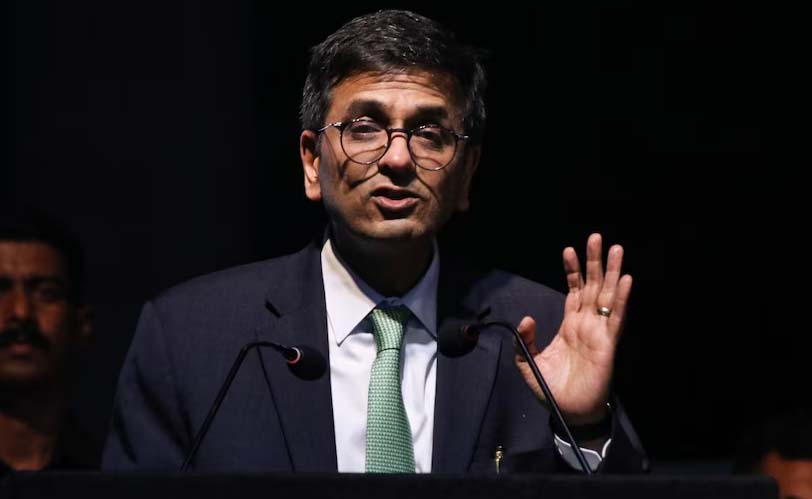Chief Justice of India D Y Chandrachud articulated on Saturday that the implementation of artificial intelligence (AI) within the legal arena could amplify disparities by privileging those who possess cutting-edge technology. However, he noted that it simultaneously ushers in opportunities for novel entrants and services, disrupting entrenched hierarchies.
During a two-day symposium on technology and dialogue featuring the Supreme Courts of India and Singapore, the CJI emphasized the necessity of careful scrutiny as AI becomes integrated into the legal landscape. He underscored the importance of ensuring AI enhances the pursuit of justice rather than hindering it.
The CJI highlighted the intricate ethical, legal, and practical complexities that accompany AI’s incorporation in court proceedings, necessitating thorough investigation. He acknowledged that AI’s usage in legal adjudication introduces both potential and challenges requiring meticulous analysis.
The CJI recounted an instance involving the Punjab & Haryana High Court, where ChatGPT was consulted to expand perspectives on a bail petition. He described the case of Jaswinder Singh v. State of Punjab, where the presiding judge, despite ultimately denying the bail petition due to serious allegations, sought ChatGPT’s insights. Nevertheless, the high court did not utilize ChatGPT’s input for the case’s merits but rather to obtain a broader comprehension of bail jurisprudence, particularly in cruelty-related contexts.
These instances demonstrate that addressing the question of AI utilization in court adjudication is unavoidable. While AI offers unmatched opportunities, it also introduces profound challenges regarding ethics, responsibility, and partiality. Overcoming these obstacles necessitates global collaboration across geographic and institutional lines, the CJI remarked.
The CJI pointed out the need for comprehensive auditing mechanisms to prevent AI “hallucinations” – instances where AI generates incorrect or deceptive responses. These may lead to flawed advice and, in severe cases, miscarriages of justice.
He reiterated the potential for AI to intensify inequalities by favoring those with access to advanced technology, while also creating openings for new participants and services, thus disrupting established orders.
The hybrid-mode hearings adopted by the Supreme Court represent a transformative shift in India’s judicial framework with significant effects on access to justice and the legal profession. By embracing hybrid hearings, which facilitate virtual participation, the Supreme Court has eliminated geographical constraints and democratized access to the highest court.
The challenge of bias in AI systems is intricate, particularly when it involves indirect discrimination – when neutral policies or algorithms unintentionally disproportionately impact specific groups, thereby compromising their rights and protections.
In AI, indirect discrimination can emerge during the training phase due to faulty data, resulting in biased outcomes, or during data processing within opaque “black-box” algorithms that conceal decision-making from human creators.
The CJI noted that the advancement of technology and AI in the legal field brings potential for expediting and streamlining justice delivery.
“The era of stagnation is over; it is time to embrace change within our field and explore how we can leverage technology’s power within our institutions,” he asserted.
Justice Chandrachud warned of the possibility of AI leading to a bifurcated system where access to high-quality legal support could become stratified by socio-economic standing.
“The underprivileged may find themselves relegated to substandard AI-driven services, while only the affluent or premier law firms can fully utilize legal AI’s potential. Such a scenario risks widening the justice gap and perpetuating existing disparities within the legal system,” he cautioned. Chief Justice of Singapore Justice Sundaresh Menon, along with numerous other judges and specialists, also attended the conference.




